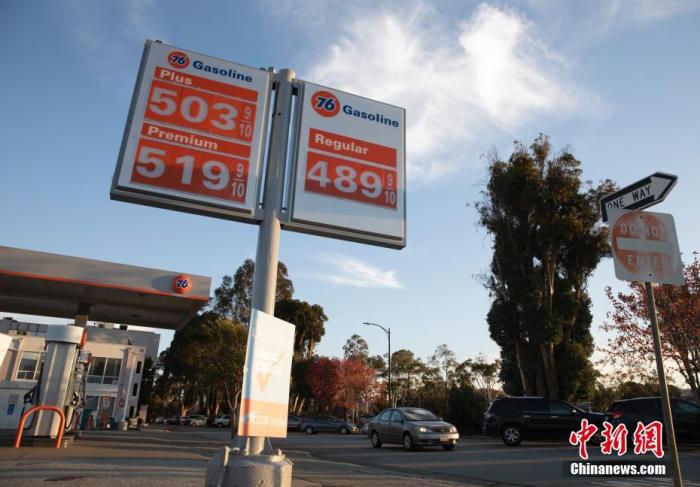China News Service, November 24th, a comprehensive report, US President Biden announced on the 23rd that the United States will release 50 million barrels of strategic oil reserves to reduce oil prices.
However, U.S. media noticed that oil prices rose after the U.S. announced that it would release its strategic oil reserves.
Analysts question whether the US government’s release is sufficient to meet the surge in demand.
In addition, the Biden administration has limited tactics to curb oil prices. The release of strategic oil reserves can only produce short-term effects and cannot solve long-term problems.
Data map: US President Biden.
Photo by China News Agency reporter Chen Mengtong
Biden: "Draining" will not solve high oil prices overnight
According to reports, on the 23rd local time, Biden admitted that the release of 50 million barrels of strategic oil reserves "will not solve the problem of high oil prices overnight," but he insisted that his actions "will have an impact."
In his speech at the Washington Administration Building, Biden also said: "It will take time, but it won't take long. Wherever you fill up the gas tank, the price of gasoline will drop."
Biden believes: "The main reason the United States is facing high oil prices is that oil-producing countries and large companies have not increased oil supply fast enough to meet demand."
He further accused the oil and gas companies of "smuggling" the difference between the wholesale and retail prices of natural gas, calling it "unacceptable."
He asked the Federal Trade Commission to investigate whether energy companies were involved in an "illegal act" that artificially raises gasoline prices.
Biden also denied that the increase in oil prices was due to environmental protection actions taken by his government, including the controversial cancellation of oil pipeline projects.
"My effort to tackle climate change is not to increase gasoline prices. What it does is to increase employment opportunities."
Data map: On November 16, local time, a car passed by a gas station in San Mateo County, California, USA.
According to data from the American Automobile Association, gasoline prices in California hit a record high that day, and the average price of regular gasoline per gallon soared to $4.687, ranking first among all states in the United States.
This is the third consecutive day that California has broken oil price records.
Photo by China News Agency reporter Liu Guanguan
After the United States announced an emergency "oil release", how did the market react?
The Wall Street Journal noted that Biden's expected increase in supply will cause prices to fall, but after the news was announced on the 23rd, the wholesale price of crude oil in the financial market has risen.
Analysts question whether the government's release is sufficient to meet the surge in demand.
They also said that the main purpose of releasing the reserve may be to show the White House's determination to do its utmost to curb inflation.
The New York Post reported that the market does not seem to be optimistic about Biden's actions.
Rystad Energy’s senior vice president responsible for the oil market said: “The problem is that everyone knows that this measure is temporary.” “So once it stops, if demand continues to be higher than supply as it is now, then you have to go back. starting point."
Rystad Energy's head of oil market research also said: "For those drivers who want to know whether gasoline prices will fall, the reality is that this may not happen at all, or there is just a considerable lag time."
Data map: On November 16, local time, a car passed by a gas station in San Mateo County, California, USA.
Photo by China News Agency reporter Liu Guanguan
There are limited tactics to suppress oil prices. Has oil prices dragged down Biden's approval rating?
On the other hand, Republicans continue to criticize Biden's latest energy policy.
House Minority Leader McCarthy criticized Biden's latest move as a "stupid political strategy" on Twitter.
Some reports have analyzed that oil prices and inflation have dragged down Biden's approval rating.
The Republican Party has been chasing Biden on the issue of oil prices, while the Democratic Party is concerned that inflation will become a decisive factor in the outcome of next year's midterm elections.
In the face of domestic political and economic pressures, Biden's oil policy has also become "use more now and use less in the future", creating a contradiction between long-term goals and short-term goals.
The analysis pointed out that the Biden administration has limited tactics to curb oil prices. The release of strategic oil reserves can only produce short-term effects and cannot solve long-term problems.

